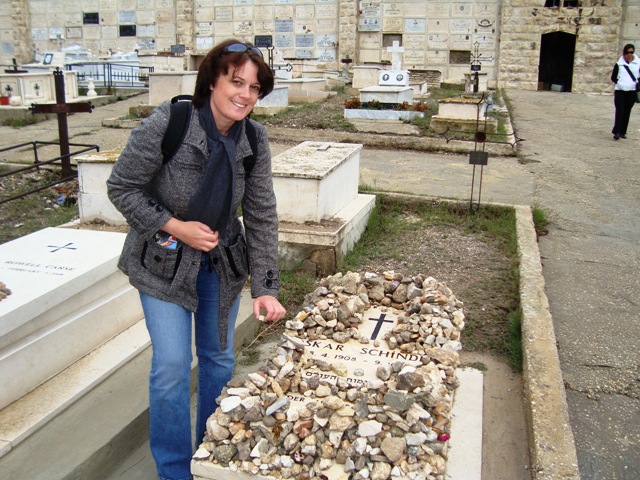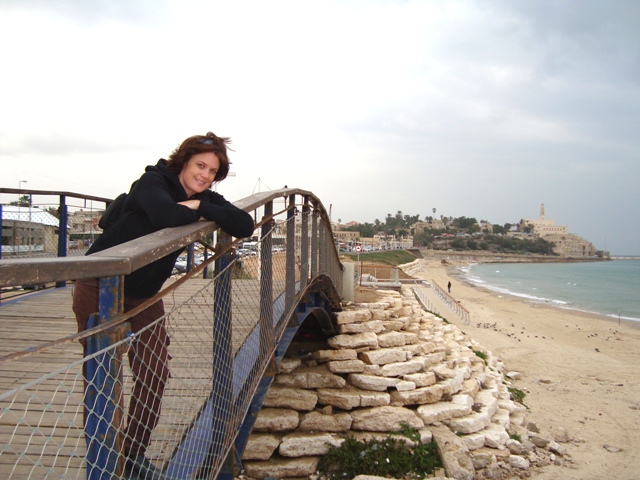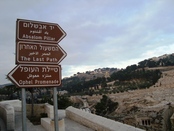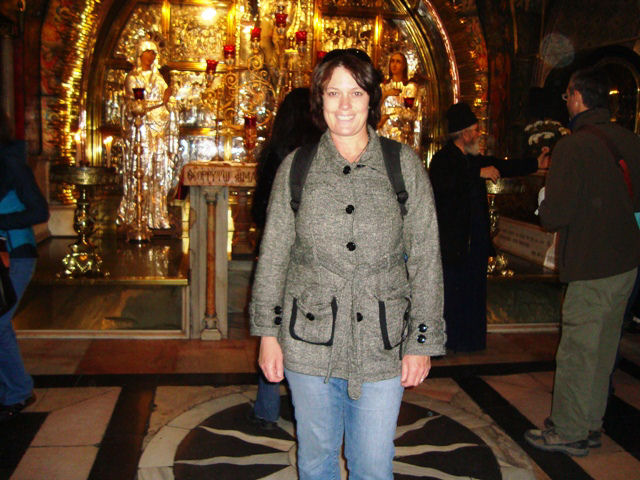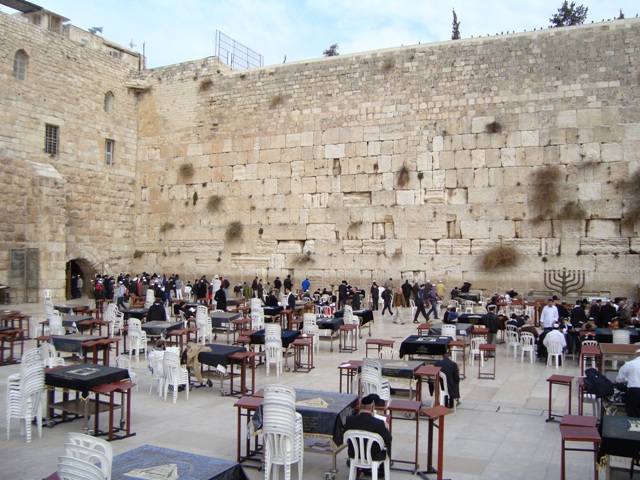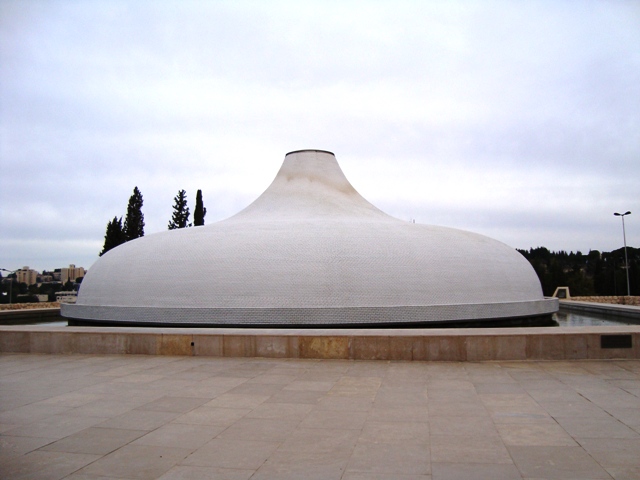Israel
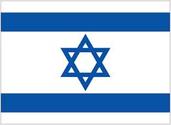
Wikipedia - Israel is a parliamentary republic in the Middle East, along the eastern shore of the Mediterranean Sea. It borders Lebanon in the north, Syria in the northeast, Jordan and the West Bank in the east, Egypt and the Gaza Strip on the southwest, and the Gulf of Aqaba in the Red Sea to the south, and it contains geographically diverse features within its relatively small area. Israel is defined as a Jewish and Democratic State in its Basic Laws and is the world's only Jewish-majority state.
CLICK ON THE PICTURES BELOW TO DISCOVER SOME OF THE BEST THINGS TO SEE AND DO IN ISRAEL
Israel Timeline From 2000 BC to 2009
2000BC - According to the Hebrew bible called the Torah, the Land of Israel was promised to the Jewish people as their homeland by God.
1947 - The United Nations voted to partition Palestine into two states, one Jewish and one Arab, this led to civil war in Palestine.
1948 - Israeli Declaration of Independence. Since its foundation, Israel’s Arab neighbors have disputed her boundaries and right to exist leading to a series of
wars and conflicts that continue to this day.
1948 - Shortly after they declared independence Israel was invaded by their Arab neighbors launching the 1948 Arab-Israeli War. An estimated 711,000 Arabs
fled the country and the fate of these refuges is still a point of contention between the Palestinians and Jews today.
1952 – Israel signs an agreement with West Germany in which they would receive reparations in the sum of 3 billion marks over 14 years to compensate the Jews
for their stolen property and loss of lives at the hands of the Nazis. The intent of the agreement was to help support the 500,000 Holocaust survivors that
immigrated to Israel many of whom were living in tent villages.
1967 – Israel engages in the Six Day War with Egypt, Syria and Jordan achieving a quick victory in which they captured the West Bank, Gaza Strip, Sinai
Peninsula and Golan Heights. The Palestinian Liberation Organization was formed in response to the Arab defeat.
1972 – Israeli athletes were kidnapped and later massacred at the Summer Olympic Games in Munich, West Germany by an organization called Black
September. Israel responded with Operation Spring of Youth and Operation Wrath of God, a series of airstrikes and assassinations aimed at those
responsible for the massacre.
1973 – Egypt and Syria launch a surprise attack on Israel in the Yom Kippur war and once again lose to Israel but not without inflicting great loss to the Israelis.
1979 – Israel signs a peace treaty with Egypt
1987 – A violent Palestinian uprising called the First Intifada broke out in Israeli occupied territories causing over 1000 deaths over a period of six years.
1993 – The Oslo Accords are signed giving the Palestinian National Authority the right to self-govern parts of the West Bank and Gaza Strip.
1994 – The Israel-Jordan Peace Treaty is signed
1995 – Wye River Memorandum is signed giving the Palestinian National Authority even more power.
2000 – Bill Clinton invites Palestinian Authority Chairman Yasser Arafat and Israeli Prime Minister Ehud Barak to the Camp David Summit to broker a plan for the
establishment of a Palestinian State. Arafat rejects plan and a Second Intifada starts.
2006 – Hezbollah radicals kidnap two Israeli soldiers sparking a war with Lebanon.
2009 – Israel attacks the Gaza Strip with air strikes then later a ground invasion after a ceasefire between them and the Hamas break down. Four days after initial strike, Teresa the Traveler returns home to Canada.
1947 - The United Nations voted to partition Palestine into two states, one Jewish and one Arab, this led to civil war in Palestine.
1948 - Israeli Declaration of Independence. Since its foundation, Israel’s Arab neighbors have disputed her boundaries and right to exist leading to a series of
wars and conflicts that continue to this day.
1948 - Shortly after they declared independence Israel was invaded by their Arab neighbors launching the 1948 Arab-Israeli War. An estimated 711,000 Arabs
fled the country and the fate of these refuges is still a point of contention between the Palestinians and Jews today.
1952 – Israel signs an agreement with West Germany in which they would receive reparations in the sum of 3 billion marks over 14 years to compensate the Jews
for their stolen property and loss of lives at the hands of the Nazis. The intent of the agreement was to help support the 500,000 Holocaust survivors that
immigrated to Israel many of whom were living in tent villages.
1967 – Israel engages in the Six Day War with Egypt, Syria and Jordan achieving a quick victory in which they captured the West Bank, Gaza Strip, Sinai
Peninsula and Golan Heights. The Palestinian Liberation Organization was formed in response to the Arab defeat.
1972 – Israeli athletes were kidnapped and later massacred at the Summer Olympic Games in Munich, West Germany by an organization called Black
September. Israel responded with Operation Spring of Youth and Operation Wrath of God, a series of airstrikes and assassinations aimed at those
responsible for the massacre.
1973 – Egypt and Syria launch a surprise attack on Israel in the Yom Kippur war and once again lose to Israel but not without inflicting great loss to the Israelis.
1979 – Israel signs a peace treaty with Egypt
1987 – A violent Palestinian uprising called the First Intifada broke out in Israeli occupied territories causing over 1000 deaths over a period of six years.
1993 – The Oslo Accords are signed giving the Palestinian National Authority the right to self-govern parts of the West Bank and Gaza Strip.
1994 – The Israel-Jordan Peace Treaty is signed
1995 – Wye River Memorandum is signed giving the Palestinian National Authority even more power.
2000 – Bill Clinton invites Palestinian Authority Chairman Yasser Arafat and Israeli Prime Minister Ehud Barak to the Camp David Summit to broker a plan for the
establishment of a Palestinian State. Arafat rejects plan and a Second Intifada starts.
2006 – Hezbollah radicals kidnap two Israeli soldiers sparking a war with Lebanon.
2009 – Israel attacks the Gaza Strip with air strikes then later a ground invasion after a ceasefire between them and the Hamas break down. Four days after initial strike, Teresa the Traveler returns home to Canada.
The Palestinian Question
The Israeli-Palestinian conflict dates back to the early Zionist pioneers and the Arabs living in Palestine under Ottoman rule. The Zionist movement grew in response to anti-Semitism in Russia and Europe. Their goal was to form a Jewish Nation in Palestine and the World Zionist Organization and the Jewish
National Fund encouraged immigration and funded the purchase of land in Palestine. Massive numbers of Jewish immigrants started to flood into Palestine leaving the Palestinian Arab population feeling threatened. As anti-Semitism grew in Europe after the rise of the Nazi party, so did the number
of Jewish immigrants to Palestine. Tensions between Arabs and Jews in the region also grew. In 1947, the United Nations approved the partition of Palestine
into two states, one Jewish and one Arab. This sparked a wave of violence that ended with Israel declaring its independence and the beginning of numerous Arab-Israeli wars. There have been many attempts since to separate the country into two states but while many people from both sides favour this solution, an agreement has never been reached.
National Fund encouraged immigration and funded the purchase of land in Palestine. Massive numbers of Jewish immigrants started to flood into Palestine leaving the Palestinian Arab population feeling threatened. As anti-Semitism grew in Europe after the rise of the Nazi party, so did the number
of Jewish immigrants to Palestine. Tensions between Arabs and Jews in the region also grew. In 1947, the United Nations approved the partition of Palestine
into two states, one Jewish and one Arab. This sparked a wave of violence that ended with Israel declaring its independence and the beginning of numerous Arab-Israeli wars. There have been many attempts since to separate the country into two states but while many people from both sides favour this solution, an agreement has never been reached.
Teresa the Traveler's Israel Travel Tips
1. Due to the ongoing Israeli-Palestinian dispute, Afghanistan, Algeria, Iran, Iraq, Kuwait, Lebanon, Libya, Saudi Arabia, Somalia, Sudan,Syria, and Yemen block passports containing stamps or visas from Israel. You may also have difficulties getting into and/or be refused visas to other Islamic countries, such as Bangladesh, Brunei, Indonesia, Malaysia, Pakistan, etc. If you intend to visit any of these nations, ask immigration to stamp ablank page, rather than your passport, when entering. Note that those countrieswill also search for Jordanian/Egyptian exit stamps from land borders with Israel and will likewise prohibit your entry if they find one. Please keep this piece of paper safe and secure. In particular, you should not hand it to the border police employee standing right after the passport control. (He or she might absentmindedly think it a confirmation slip and tear it up.) If this paper is lost or damaged, you will have no verification about having entered Israel legally, which will cause you difficulties when leaving.
2. Don't plan to travel during the Shabbat because most buses aren't running and many stores and restaurants are closed until the Shabbat is over.
3. The voltage in Israel is 220 V, and the frequency is 50 Hz. The electric outlets used are type H and Type C. Type H is a uniquely Israeli three-pronged standard, but most modern type H outlets can also accept type C European two-pronged plugs. In fact, most electronic devices in Israel use type C plugs.
2. Don't plan to travel during the Shabbat because most buses aren't running and many stores and restaurants are closed until the Shabbat is over.
3. The voltage in Israel is 220 V, and the frequency is 50 Hz. The electric outlets used are type H and Type C. Type H is a uniquely Israeli three-pronged standard, but most modern type H outlets can also accept type C European two-pronged plugs. In fact, most electronic devices in Israel use type C plugs.
|
|
Israel Facts1. The Mossad is Israel`s equivalent to the CIA. They are responsible for intelligence collection and covert
operations including assassinations and other paramilitary activities. They belong to the Israeli Intelligence Community, along with Aman (military intelligence) and Shin Bet (internal security), but its director reports directly to the Prime Minister 2. Many visitors to Israel go there to live in a Kibbutz which is a collective community traditionally based on agriculture. Guests often stay free of charge in exchange for working the fields. 3. McDonald’s restaurants in Israel are “kosher” meaning they only serve food that is prepared in accordance to Jewish dietary laws, for example, only meat from particular species is permissible and wild animals must be trapped and ritually slaughtered to be considered kosher. 4. Purim is like “Jewish Halloween” where people dress up in costumes to commemorate the deliverance of the Jewish people of the ancient Persian Empire from Haman’s plot to annihilate them. They also send food gifts to friends give to the poor and eat a festive meal to celebrate. 5. Every four years Israel host the Maccabiah Games, which is an international event similar to the Olympic Games but for Jewish and Arab-Israeli athletes. 6. Israeli law states that Lebanon, Syria, Saudi Arabia, Iraq and Yemen are enemy countries and Israeli citizens are prohibited from visiting those countries without permission from the Ministry of the Interior. 7. Having been involved in several major wars and border conflicts in its short history, the Israel Defence Forces is one of the most battle-trained armed forces in the world. 8. Israel is a global leader in water conservation and geothermal energy. 9. Israel’s Law of return, enacted in 1950, grants all Jews, people with Jewish lineage and their spouses the right to Israeli citizenship. 10. Israel is the only country in the region ranked "Free" by Freedom House (a non-government organization based out of Washington DC) based on the level of civil liberties and political rights; however, the "Israeli OccupiedTerritories/Palestinian Authority" was ranked "Not Free." |
For tips on visiting the Middle East CLICK HERE
For general travel tips on what to pack and how to plan ahead CLICK HERE
For tips on travelling on a budget CLICK HERE
For general travel tips on what to pack and how to plan ahead CLICK HERE
For tips on travelling on a budget CLICK HERE

